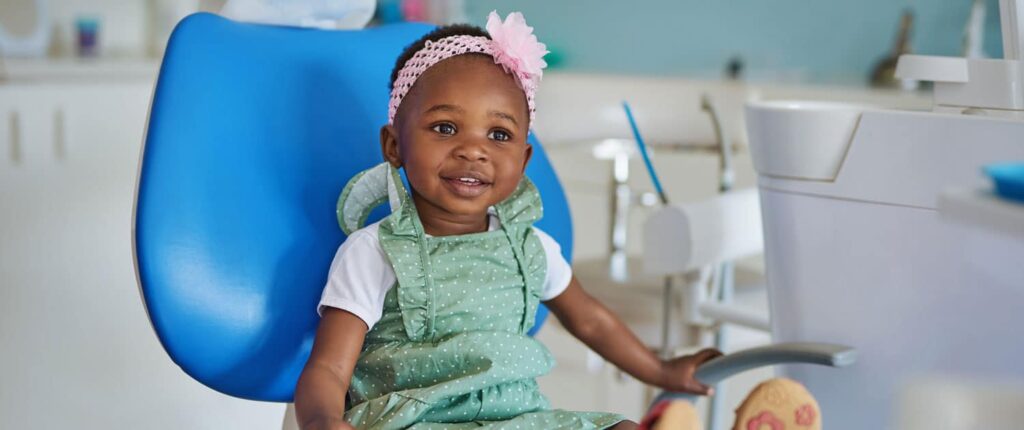
A child’s smile is precious, but did you know that their oral health journey begins long before their first tooth appears? Many parents assume that baby teeth don’t need much care since they eventually fall out, but early dental care is crucial for setting kids up for a lifetime of healthy smiles.
From preventing cavities to ensuring proper speech development, taking care of your child’s teeth from an early age helps establish good oral hygiene habits and prevents serious dental issues in the future. In this blog, we’ll explore why early dental care matters, when to start, and how parents can keep their children’s teeth healthy.
Why Early Dental Care Matters
Many parents don’t realize that tooth decay is one of the most common chronic diseases in children. According to the CDC, nearly 1 in 5 children aged 5–11 has at least one untreated cavity. Left untreated, cavities can cause pain, difficulty eating, and even affect a child’s ability to learn and concentrate.
Here’s why early dental care is essential:
1. Prevents Early Tooth Decay
Even though baby teeth are temporary, they serve an important role in your child’s development. Cavities in baby teeth can lead to:


Caring for baby teeth helps prevent costly and painful dental treatments later on.
2. Encourages Healthy Oral Hygiene Habits
Children learn by example, and introducing oral care at an early age helps them develop lifelong habits. When kids are taught to brush and floss from a young age, they are more likely to maintain these habits into adulthood.
3. Supports Proper Speech and Jaw Development
Baby teeth help with speech development and proper pronunciation. Missing or decayed teeth can lead to speech issues and even impact jaw alignment. Keeping your child’s teeth healthy supports their overall development.
4. Prevents Costly and Painful Treatments
Regular dental checkups can catch problems before they become serious. Early intervention can prevent issues like:


Prevention is always better than treatment!
When Should Kids Start Seeing a Dentist?
Many parents wait until their child is older to visit the dentist, but the American Dental Association (ADA) recommends scheduling the first dental visit by their first birthday or within six months of their first tooth erupting.
Why so early?




Starting early reduces dental anxiety and makes future visits stress-free for both parents and children.
How to Care for Your Child’s Teeth at Every Stage
Taking care of your child’s teeth starts before the first tooth even appears! Here’s a guide for each stage:
 Infants (0–12 Months)
Infants (0–12 Months)



 Toddlers (1–3 Years)
Toddlers (1–3 Years)




 Preschoolers (3–6 Years)
Preschoolers (3–6 Years)




 School-Age Kids (6+ Years)
School-Age Kids (6+ Years)




Common Dental Problems in Kids and How to Prevent Them
1. Cavities (Tooth Decay)


2. Thumb-Sucking and Pacifier Use


3. Gum Disease (Gingivitis)


4. Tooth Grinding (Bruxism)


Tips to Make Dental Care Fun for Kids
Children are more likely to enjoy brushing and flossing if it’s fun! Try these tricks:





Final Thoughts: A Healthy Start for a Lifetime of Smiles!
Early dental care is one of the best gifts you can give your child. Healthy baby teeth pave the way for strong adult teeth, better overall health, and confidence in their smile.




By teaching kids the importance of oral hygiene from the start, you’re setting them up for a lifetime of healthy smiles and strong teeth!
Need Help Getting Started?
At SmileDoctor Foundation, we’re dedicated to promoting early dental care and helping children develop healthy oral habits. If you have questions or need support, reach out to us today!
Let’s work together to create brighter, healthier smiles for the next generation!


